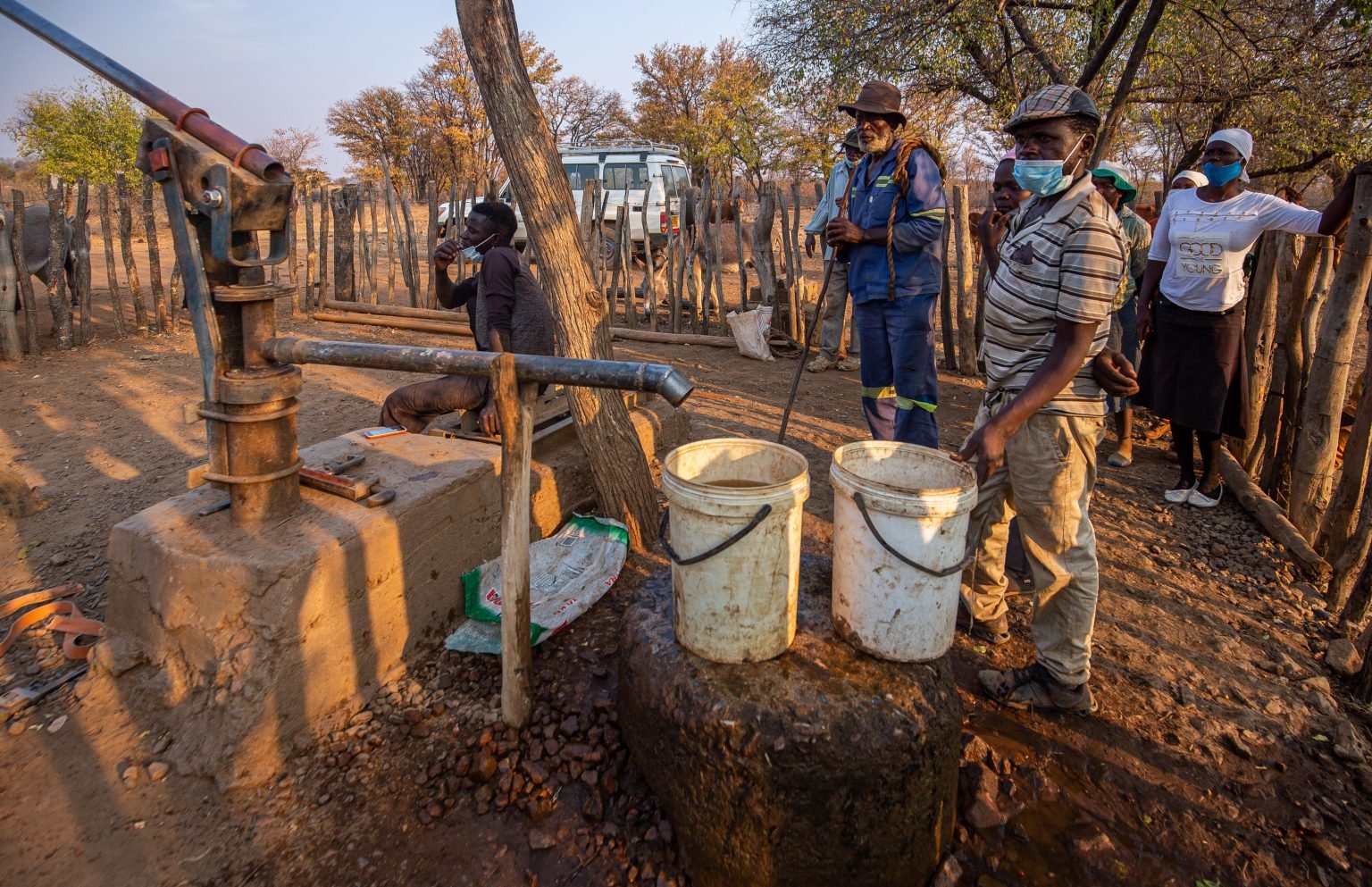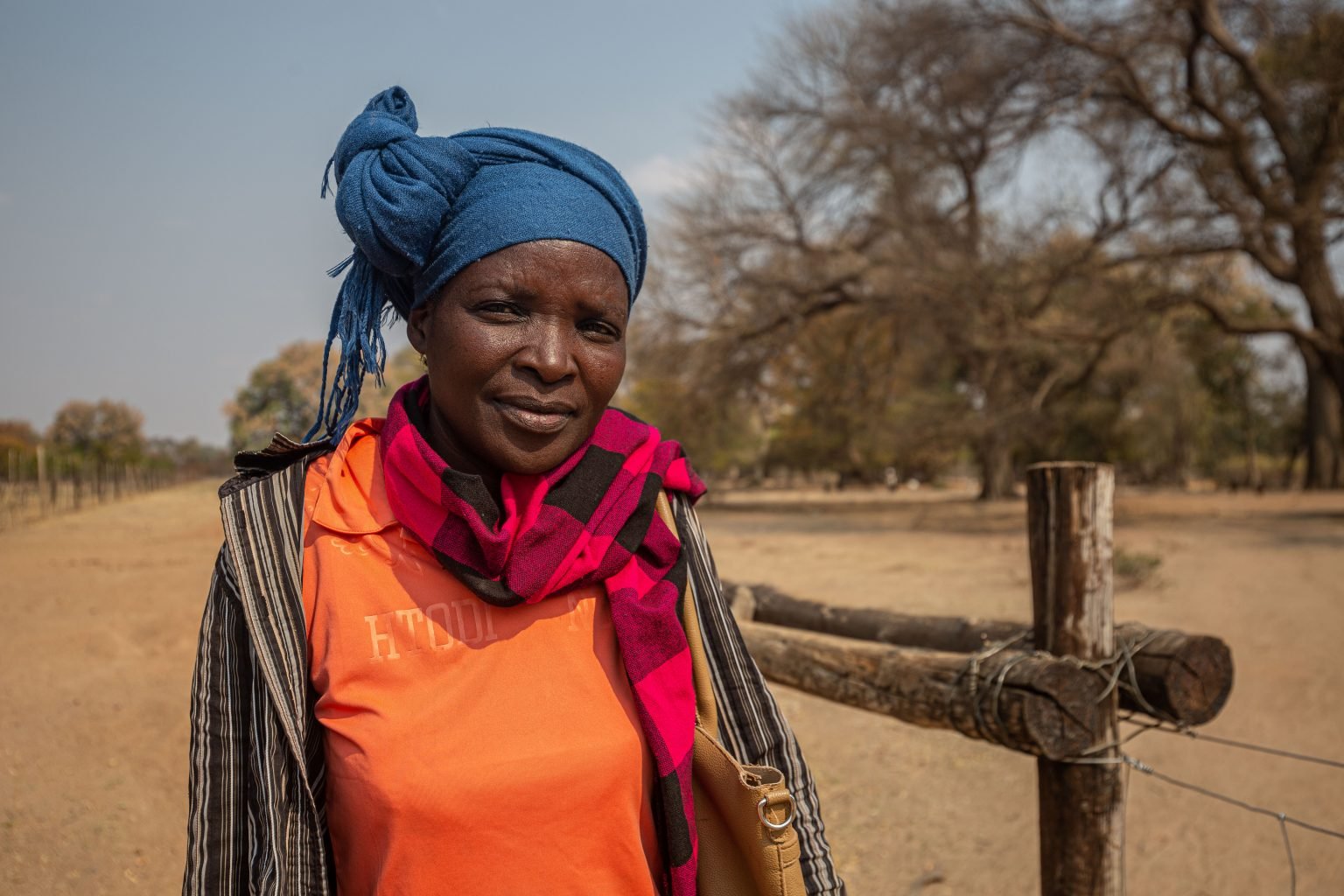Blog by Cordaid
The joint response of the Dutch Relief Alliance, a consortium of 16 Dutch aid organizations, provides life-saving assistance to people facing severe food insecurity in drought-affected Zambia and Zimbabwe.
Most countries in the southern part of the African continent will see a worrying drop in harvest yield in 2020, caused by an unusually dry rainy season. In Zambia and Zimbabwe, the consequences are disastrous.
8 of the 16 aid organisations in the Dutch Relief Alliance are collaborating in a joint response to help the most vulnerable households with food and protect and rebuild their livelihoods.
In Kotiva Village, home to 42-year-old Osthuizen Chirumbwana, fistfights used to break out almost on a daily basis. The culprit of these violent outbursts was a malfunctioning borehole that stopped providing enough water to the villagers.
“When we settled here in 2011, we would get water from a farm about 6 kilometres from here”, says Chirumbwana. “There was no reliable water source in Kotiva.”

The people of Kotiva were ecstatic when they had their own borehole in 2013. But 5 years later the water source started developing issues and broke down.
On any given morning, a queue of more than 50 people would form and the villagers would need to exercise unwavering patience to go home with only a single bucket of water.
On top of that, their livestock also depended on the same water source and the local dam was drying early due to extreme heat and poor rainfall.
The organisations in the Zimbabwe/Zambia Joint Response came to the rescue and rehabilitated the borehole, which not only saved the lives of the 200 villagers but also more than 500 animals.
Chirumbwana: “This water source also helps us with growing our own food. I have high hopes for our community garden. It gives us more food security and will also improve our livelihoods.”
Also in Bambadzi, a remote village in Matabeleland Bulilima District, water had become so scarce that people would travel up to 100 kilometres on dusty roads to find barely enough to survive.
Ntombizodwa Ngwenya, a 54-year-old widow, narrates the horrors of the times she had to risk her life to avoid dying of thirst. “I would cross the border fence into Botswana to find some water. On our side, the boreholes would break down all the time. I climbed over the fence around mid-afternoon to avoid conflicts with villagers in Botswana. By then, they would have left their fields. There were many risks, like being raped in the bushes, being beaten or even arrested.”

The Zimbabwe/Zambia Joint Response did not only assist families in this region with food and water but has also set up long-term projects to help them cope with the challenges related to climate change.
Now, the community has access to 5 functioning boreholes, while more are still being constructed.
“Since our borehole has been restored, I don’t have to risk my life or worry about being caught by border patrol anymore”, says Ntombizodwa Ngwenya.
The Dutch Relief Alliance quickly responded to the most urgent needs, notwithstanding operational challenges due to COVID-19. The joint response focuses on water, sanitation and hygiene, food security and livelihoods, nutrition, and COVID-19 prevention.
Save the Children
Laan van Nieuw Oost-Indië 131-k
2593 BM Den Haag
The Netherlands
Chair organisation: Plan International
E: office@dutchrelief.org